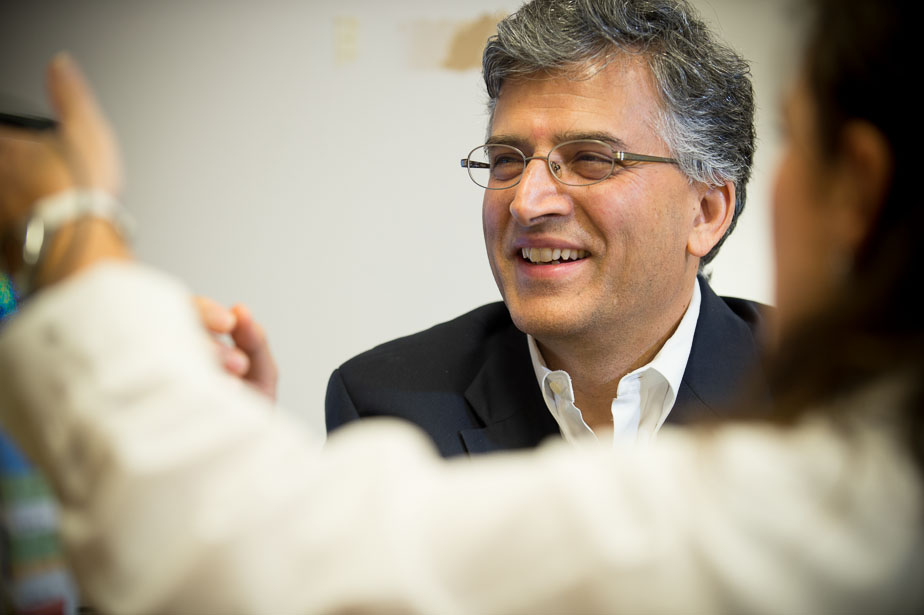 VIJAY K. KUCHROO, DVM, PHD
VIJAY K. KUCHROO, DVM, PHD
PRINCIPAL INVESTIGATOR
Vijay Kuchroo Ph.D., D.V.M. is the Samuel L. Wasserstrom Professor of Neurology at Harvard Medical School and a Senior Scientist at Brigham and Women’s Hospital. He is the founding Director of The Gene Lay Institute. He is also a Member of the Broad Institute of Harvard and MIT and an investigator in the Klarman Cell Observatory.
Dr. Kuchroo obtained his PhD from the University of Queensland, Australia and completed his postdoctoral studies as a Fogarty Fellow at the National Institutes of Health and later Harvard Medical School. In 1991, Dr. Kuchroo joined the faculty of Harvard Medical School.
His major research interests include autoimmunity – particularly the role of co-stimulation, the genetic basis of experimental autoimmune encephalomyelitis and multiple sclerosis, as well as cell surface molecules and regulatory factors that impact the induction of T cell tolerance and dysfunction. His laboratory is known for being the first to describe the TIM family of genes, specifically, identifying TIM3 as an inhibitory receptor expressed on T cells, which is now being exploited for cancer immunotherapy. Along with generating several transgenic mouse strains that serve as animal models for human multiple sclerosis, his laboratory was the first to describe the development of pathogenic Th17 cells, which have been shown to induce multiple different autoimmune diseases in humans.
Dr. Kuchroo has published over 400 research articles and is the lead author of a paper describing the development of Th17 cells, which is one of the most cited papers in the field of immunology. He is the recipient of the Javits Investigator Award from the NIH, the Dr. William E. Paul Distinguished Innovator Award from the Lupus Research Alliance, and the MileStones in Research Award and the Dystel Prize for MS Research from the National Multiple Sclerosis Society. Dr. Kuchroo was named a Distinguished Fellow by the American Association of Immunologists in 2021, among the highest honors bestowed by AAI.